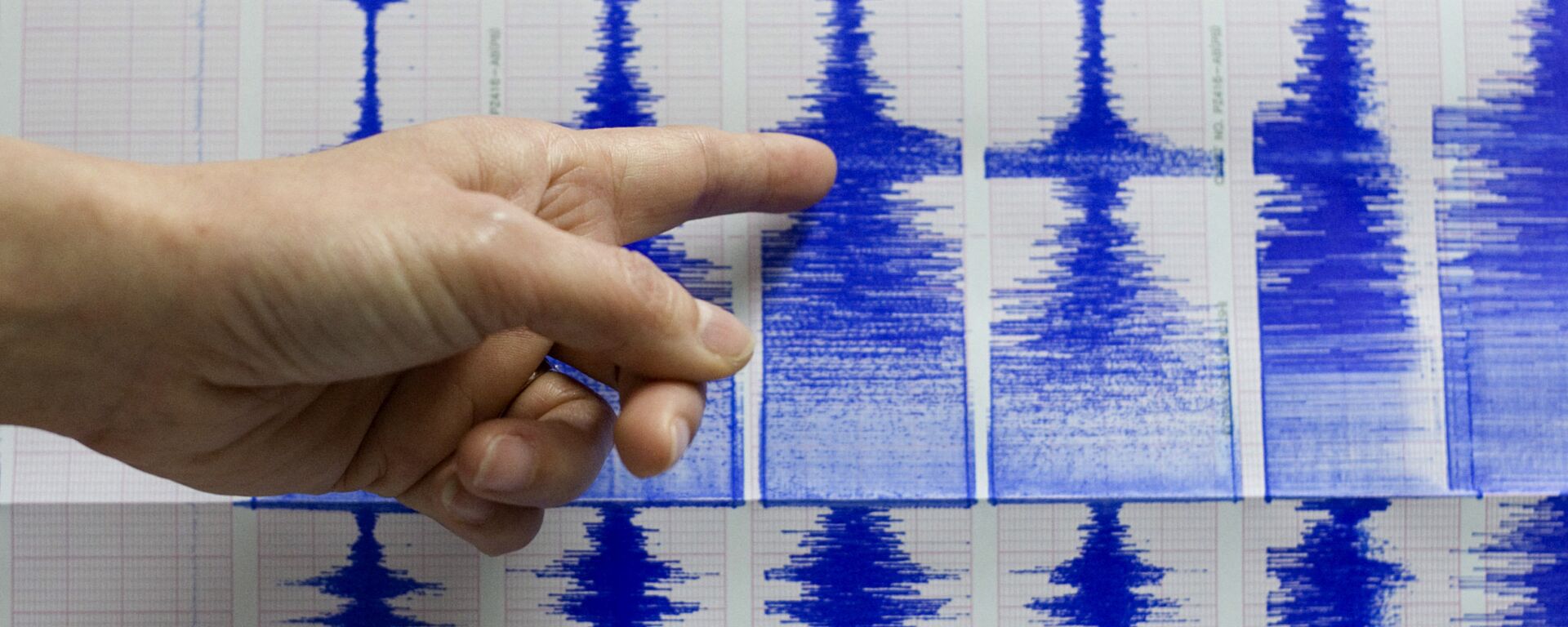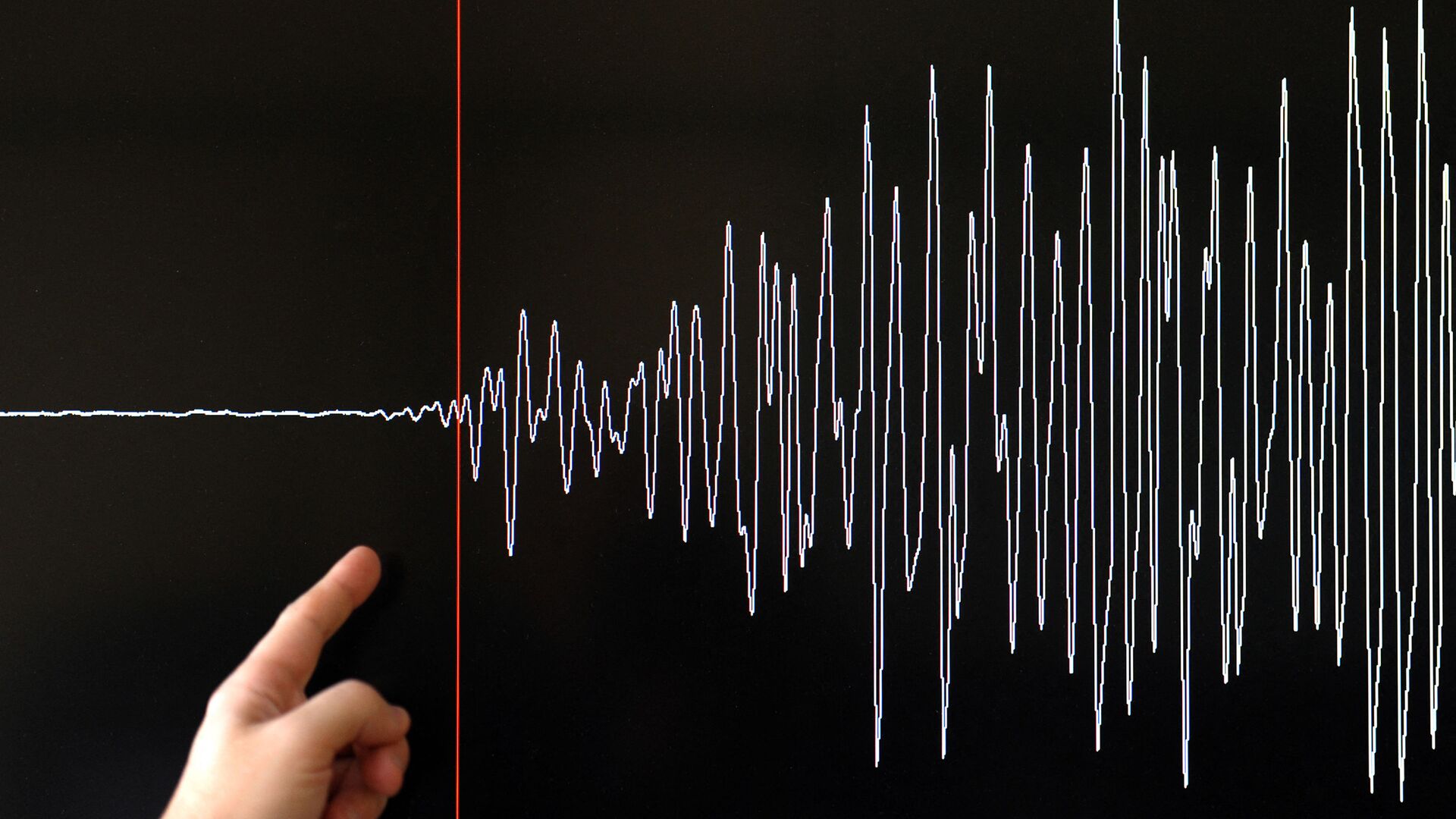https://sputnikglobe.com/20230106/intensified-earthquakes-in-west-texas-may-be-linked-to-fracking-related-activity-experts-say-1106071591.html
Intensified Earthquakes in West Texas May Be Linked to Fracking-Related Activity, Experts Say
Intensified Earthquakes in West Texas May Be Linked to Fracking-Related Activity, Experts Say
Sputnik International
EL PASO, Texas (Sputnik) - Frequent and intensified earthquake activity in West Texas over the last several months may be linked to fracking-related activity... 06.01.2023, Sputnik International
2023-01-06T01:01+0000
2023-01-06T01:01+0000
2023-01-06T00:56+0000
americas
texas
earthquakes
fracking
us
https://cdn1.img.sputnikglobe.com/img/07e5/03/04/1082255122_0:159:3077:1890_1920x0_80_0_0_b4c2a55e3061cab6eb49d884e365d6a1.jpg
West Texas, the top region in the state for oil and gas production, experienced a 5.4 magnitude earthquake that hit on November 16 and a 5.4 magnitude earthquake that occurred in the same region on December 16, marking the most intense seismic activity to strike the area in about three decades, according to the US Geological Survey. "Most of the earthquakes in West Texas are considered induced earthquakes, which are mainly caused by wastewater injection-a process for oil and gas production," University of Houston Geophysics Professor Aibing Li told Sputnik. Li said she is not surprised by the latest seismic activity since increasing earthquake activity has been going on in West Texas for a decade, however, the increase in large-size earthquakes above magnitude 5.0 is certainly a concern for earthquake hazards. Although earthquake activity is hard to predict, Li predicts seismic activity in West Texas will continue for some time until built-up stress and pore pressure induced by long-term wastewater injection is released enough by earthquakes. However, according to Li, earthquakes have cycles and they will come back if pore pressure is built up again by wastewater injection and fracking. Alexandros Savvaidis, a senior research scientist at the University of Texas' Bureau of Economic Geology and the principal investigator of Texas’ state seismic monitoring network and seismicity research (TexNet), told Sputnik it is too early to conclude what contributed to the November earthquake in West Texas, but he expects it may be somehow linked to oil and gas production in the area. More information should be available later this year about the cause of the latest seismic activity in the region and what type of oil and gas activity might have caused it, Savvaidis said. Savvaidis also predicts this type of induced seismic activity will not stop soon.
https://sputnikglobe.com/20221217/texas-records-one-of-its-strongest-earthquakes-after-magnitude-54-strikes-region-1105536599.html
americas
texas
Sputnik International
feedback@sputniknews.com
+74956456601
MIA „Rossiya Segodnya“
2023
Sputnik International
feedback@sputniknews.com
+74956456601
MIA „Rossiya Segodnya“
News
en_EN
Sputnik International
feedback@sputniknews.com
+74956456601
MIA „Rossiya Segodnya“
Sputnik International
feedback@sputniknews.com
+74956456601
MIA „Rossiya Segodnya“
texas, earthquakes, fracking, us
texas, earthquakes, fracking, us
Intensified Earthquakes in West Texas May Be Linked to Fracking-Related Activity, Experts Say
EL PASO, Texas (Sputnik) - Frequent and intensified earthquake activity in West Texas over the last several months may be linked to fracking-related activity, experts told Sputnik.
West Texas, the top region in the state for oil and gas production, experienced a 5.4 magnitude earthquake that hit on November 16 and a 5.4 magnitude earthquake that occurred in the same region on December 16, marking the most intense seismic activity to strike the area in about three decades, according to the US Geological Survey.
"Most of the earthquakes in West Texas are considered induced earthquakes, which are mainly caused by wastewater injection-a process for oil and gas production," University of Houston Geophysics Professor Aibing Li told Sputnik.
"Long-term wastewater injection results in a pore pressure increase in crustal rocks, the chief reason to weaken faults and cause earthquakes. Some studies link some earthquakes to fracking activity in West Texas because the process also involves liquid injection and pore pressure increase."
Li said she is not surprised by the latest seismic activity since increasing earthquake activity has been going on in West Texas for a decade, however, the increase in large-size earthquakes above magnitude 5.0 is certainly a concern for earthquake hazards.
Although earthquake activity is hard to predict, Li predicts seismic activity in West Texas will continue for some time until built-up stress and pore pressure induced by long-term wastewater injection is released enough by earthquakes. However, according to Li, earthquakes have cycles and they will come back if pore pressure is built up again by wastewater injection and fracking.

17 December 2022, 02:40 GMT
Alexandros Savvaidis, a senior research scientist at the University of Texas' Bureau of Economic Geology and the principal investigator of Texas’ state seismic monitoring network and seismicity research (TexNet), told Sputnik it is too early to conclude what contributed to the November earthquake in West Texas, but he expects it may be somehow linked to oil and gas production in the area.
"Too early to say what contributed, cannot make new assessment," Savvaidis said. "It is most likely somehow related to oil and gas production in the area."
More information should be available later this year about the cause of the latest seismic activity in the region and what type of oil and gas activity might have caused it, Savvaidis said.
Savvaidis also predicts this type of induced seismic activity will not stop soon.



